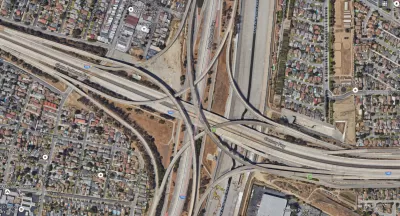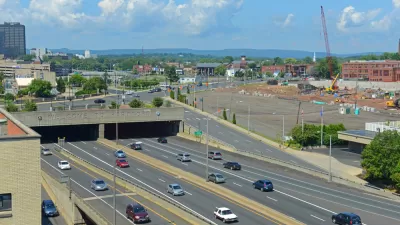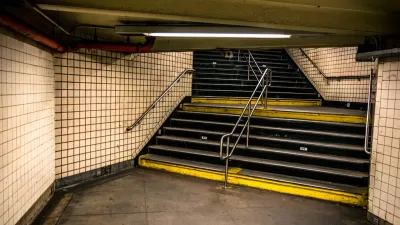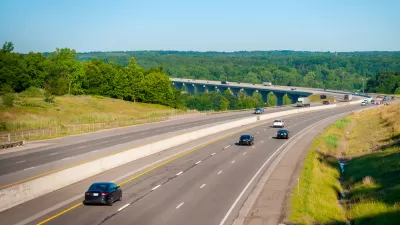An author and educator calls on a new generation of Americans to challenge the status quo and overcome the limitations and impacts of the country's existing infrastructure.

Jeffrey D. Sachs, professor and director of the Center for Sustainable Development at Columbia University, as well as the author of The Age of Sustainable Development, writes an op-ed for the Boston Globe calling for a new era of sustainable infrastructure.
According to Sachs, infrastructure is a generational challenge, and this generation is tasked with moving beyond the automobile.
The Automobile Age has run its course; our job is to renew our infrastructure in line with new needs, especially climate safety, and new opportunities, especially ubiquitous online information and smart machines.
Although Sachs acknowledges that the country has been neglecting its infrastructure as it deteriorates around us, Sachs says future infrastructure investments must focus on the long term. For a point of comparison, Sachs offers the infrastructure spending of the 2009 federal stimulus package, which focused on shovel-ready projects and jobs creation.
I PROPOSE THE opposite approach to short-term “stimulus.” I’d call it “long-term thinking,” even “long-term planning” (to use an idea that is anathema in Washington). Rather than trying to deploy construction workers within the next 60 days, I propose that we envision the kind of built environment we want for the next 60 years.
Sachs concludes the op-ed with a call to the current generation of planners, engineers, and citizens to use their imagination in envisioning the cities and rural areas of the future, and the kinds of infrastructure that will underpin their communities.
FULL STORY: Sustainable infrastructure after the Automobile Age

Alabama: Trump Terminates Settlements for Black Communities Harmed By Raw Sewage
Trump deemed the landmark civil rights agreement “illegal DEI and environmental justice policy.”

Study: Maui’s Plan to Convert Vacation Rentals to Long-Term Housing Could Cause Nearly $1 Billion Economic Loss
The plan would reduce visitor accommodation by 25% resulting in 1,900 jobs lost.

Planetizen Federal Action Tracker
A weekly monitor of how Trump’s orders and actions are impacting planners and planning in America.

Wind Energy on the Rise Despite Federal Policy Reversal
The Trump administration is revoking federal support for renewable energy, but demand for new projects continues unabated.

Passengers Flock to Caltrain After Electrification
The new electric trains are running faster and more reliably, leading to strong ridership growth on the Bay Area rail system.

Texas Churches Rally Behind ‘Yes in God’s Back Yard’ Legislation
Religious leaders want the state to reduce zoning regulations to streamline leasing church-owned land to housing developers.
Urban Design for Planners 1: Software Tools
This six-course series explores essential urban design concepts using open source software and equips planners with the tools they need to participate fully in the urban design process.
Planning for Universal Design
Learn the tools for implementing Universal Design in planning regulations.
Caltrans
Smith Gee Studio
Institute for Housing and Urban Development Studies (IHS)
City of Grandview
Harvard GSD Executive Education
Toledo-Lucas County Plan Commissions
Salt Lake City
NYU Wagner Graduate School of Public Service





























